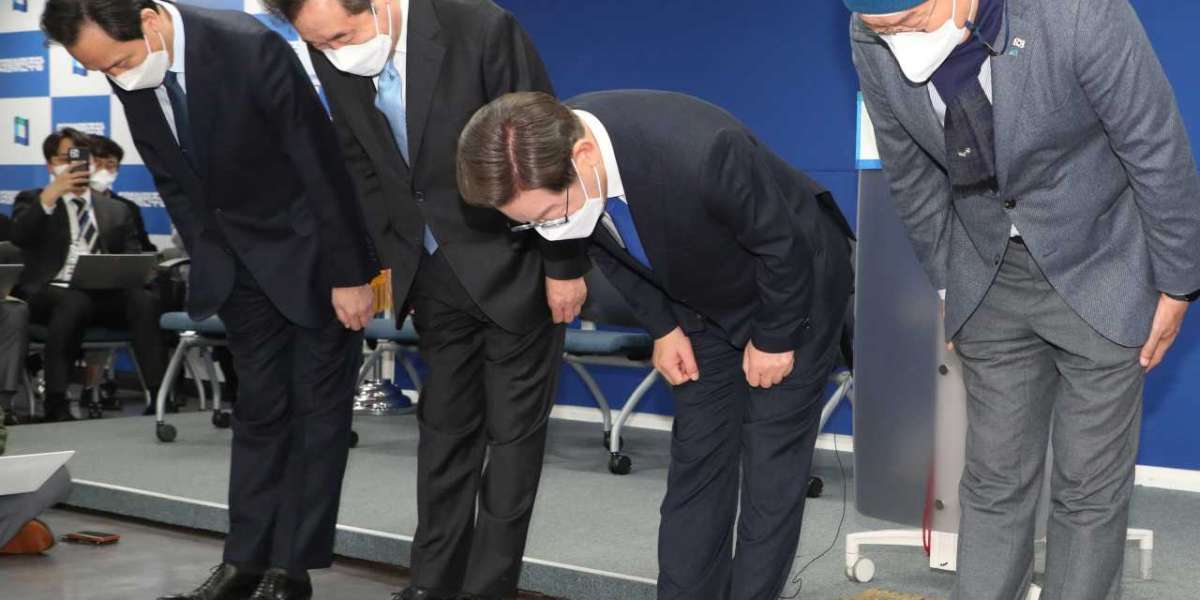In 2017, following the impeachment of his predecessor Park Geun-hye, many people, including me, predicted that the liberal Democratic Party of Korea would control politics for at least a decade. This proved to be incorrect.
Some predicted that the party would be in power for the next 20 years, and the general belief was that the conservative bloc would have a tough time making a swift recovery. However, only five years later, the conservatives are poised to retake control of the government.
As a former reporter who covered the Democratic Party and its presidential election campaign, I have a strong sense that the ruling party is entering a dark era. The liberal party made a mistake by assuming that the opposition had suffered irreparable harm as a result of Park's removal from office.
With the comfortable notion that its continuing dominance was secured, the Democratic Party neglected to attend to the demands of the people, particularly in the area of real estate development. Despite the fact that Moon and his advisers constantly stated that they could be trusted to offer high-quality homes at a low price, we all know what occurred next all too well.
The ruling party came to power on a platform of addressing the injustices and corruption that occurred during the Park administration, and voters overwhelmingly supported Moon in his pursuit of justice and fairness during the Park government.
When its own, like as former Justice Minister Cho Kuk and Rep. Yoon Mi-hyang, were accused of corruption in the previous five years, the Moon government sought to defend them, creating the impression of having double standards in place.
Furthermore, the liberal party's campaign for broad-based transformation across society, which was announced at the outset of the Moon Jae-in government, has met with only little success.
The majority of the leaders stayed the same throughout the five-year period, and in the majority of situations, only a small number of them appeared at news conferences. However, while the party was actively recruiting new candidates to run for parliamentary seats, these newcomers were not given the opportunity to shine when it mattered most.
In addition, the party's leadership failed to develop new political characters with great future potential. A brilliant star with a smart political intellect and tremendous charm has yet to emerge, nor has anybody been able to counteract the Lee Jun-seok impact in the country.
Meanwhile, the conservative party, after a shaky start, has made steady headway toward assuming control of the government in Washington. Almost all of its current leaders were out of the spotlight in 2017, and most of its most prominent figures from that period are now essentially out of the picture — at least for the time being.
The conservative party, on the other hand, still runs the risk of returning to its old methods, as seen by the large number of officials from the Lee Myung-bak government who have been recruited for the presidential transition committee.
It has two more important elections to win before it can run for president again in 2027, and what the party needs now is a united leadership that is committed to stopping the rot, trimming the fat, and perhaps even giving up some of the power it currently has in order to impress voters in the coming elections.
Democratic Party officials must express their apologies to voters for the mistakes they made following Park's impeachment, and they should not expect to be forgiven easily in return. Today's voters are willing to make choices that go beyond beliefs and party affiliation, as evidenced by the fact that many of the people who elected Moon to the president also voted for President-elect Yoon Suk-yeol five years after Moon took office.
Nonetheless, the indicators are concerning, especially in light of the so-called "reforms" implemented by the Democratic Party following the election. After designating Park Ji-hyun, a 26-year-old university student, as co-chair of the interim steering committee, the party is experiencing tremendous division about who should be in charge ahead of the June municipal elections across the country.
As Park's appointment is announced, the Democratic Party hopes it will illustrate the party's dedication to women in their 20s and 30s while also enhancing the party's image as an advocate for gender equality.
However, I have already heard from a number of party members who are uncomfortable with the fact that a political neophyte with no prior leadership experience has been appointed to the position. They argue that it just demonstrates how short-sighted the party has become in the run-up to the next election.
With party members so split, and while a power struggle between followers of Lee Jae-myung and others continues, it seems doubtful that the Democratic Party will be able to unify and lead the people in the near future, as it did during candlelight rallies a few years ago.
In order to function effectively, a democratic society must have proper checks and balances in place, and the Democratic Party would have to demonstrate its ability to check the Yoon administration's actions and work to bring reforms where they are needed if it wants to be considered for the presidency in the upcoming election.



